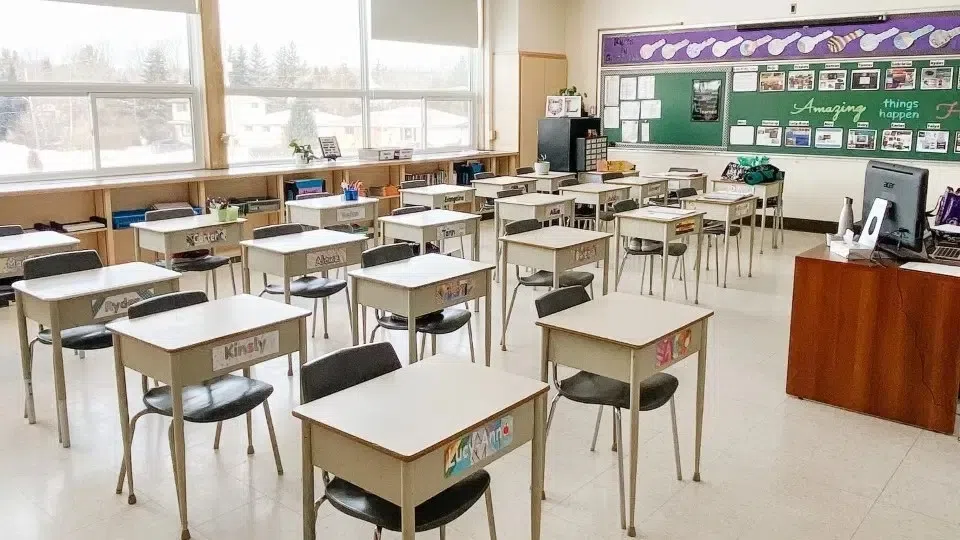New Brunswick’s Liberal government has reversed controversial changes made to the school gender-identity policy by the Progressive Conservatives.
The revised Policy 713 includes changes to the informal use of a student’s chosen first name and pronouns and expectations around communicating with families.
Students under 16 will no longer require parental consent to informally change their first name and pronouns, but consent will still be required for formal use.
Those aged 16 and over will not need parental awareness for formal or informal use, which has been consistent from the original policy introduced in 2020.
However, Education Minister Claire Johnson said they are encouraging parental awareness whenever possible through the updated policy.
“We really added a parental awareness piece that we thought was really important because with the 2020 version, parents felt left out, and that was a problem,” Johnson told reporters on Thursday.
According to the revised policy, there is an “expectation” that families are fully involved and aware if their child wants to change their name and pronouns.
If a student does not feel comfortable, the school will respect their wishes and work with them to create a support plan “when they are ready” to make their parents aware.
Johnson said what that would look like would ultimately depend on the student and would be on a case-by-case basis.
“We really wanted to make it explicit and obvious that we want to involve parents and families as much as possible,” she said.
Controversial changes in 2023
The Higgs government updated the policy in July 2023 to require students under 16 to get parental consent if they wanted to informally use a different name or pronouns.
That change led to protests and court battles, dissent from with the Progressive Conservative caucus, and a report from the province’s child and youth advocate that said the revised policy violated children’s rights.
Johnson said her government’s revisions also allow for an “approved professional” to assess a student’s capacity to make this type of decision if there is any concern from school staff — something that did not exist previously.
“This is the way that we decided to address the capacity piece that was present in the child and youth advocate version,” said the education minister.
“The spirit of this is to let teachers and principals know that there are going to be resources available to them if they feel like it’s outside of their wheelhouse.”
The child and youth advocate recommended that if a child under Grade 6 requests an informal name or pronoun change, it should be up to the principal to assess the student’s capacity.
Johnson said they decided to move away from the age limit, partly because it could have the potential to be subject to a legal challenge.
In addition to the recommendations from the child and youth advocate, the education minister said they also incorporated feedback from students, families and 2SLGBTQIA+ stakeholders.
“I am confident the changes we have made are in the best interest of students, families and school personnel,” she said. “It is essential that schools are inclusive and safe spaces.”
Teachers’ union responds
The president of the New Brunswick Teachers’ Association (NBTA) released a statement shortly after the updates to Policy 713 were announced.
Peter Legacy said teachers are dedicated to fostering inclusive and safe learning environments where every student feels they belong.
“Teachers will continue collaborating with families and appropriate school professionals to ensure all students receive the support they need,” said Legacy.
“The NBTA calls on the government to provide access to professional learning and ongoing support to all education staff, ensuring the updated version of Policy 713 is fully understood and implemented effectively.”
The revised policy will take effect on Jan. 1, 2025.








